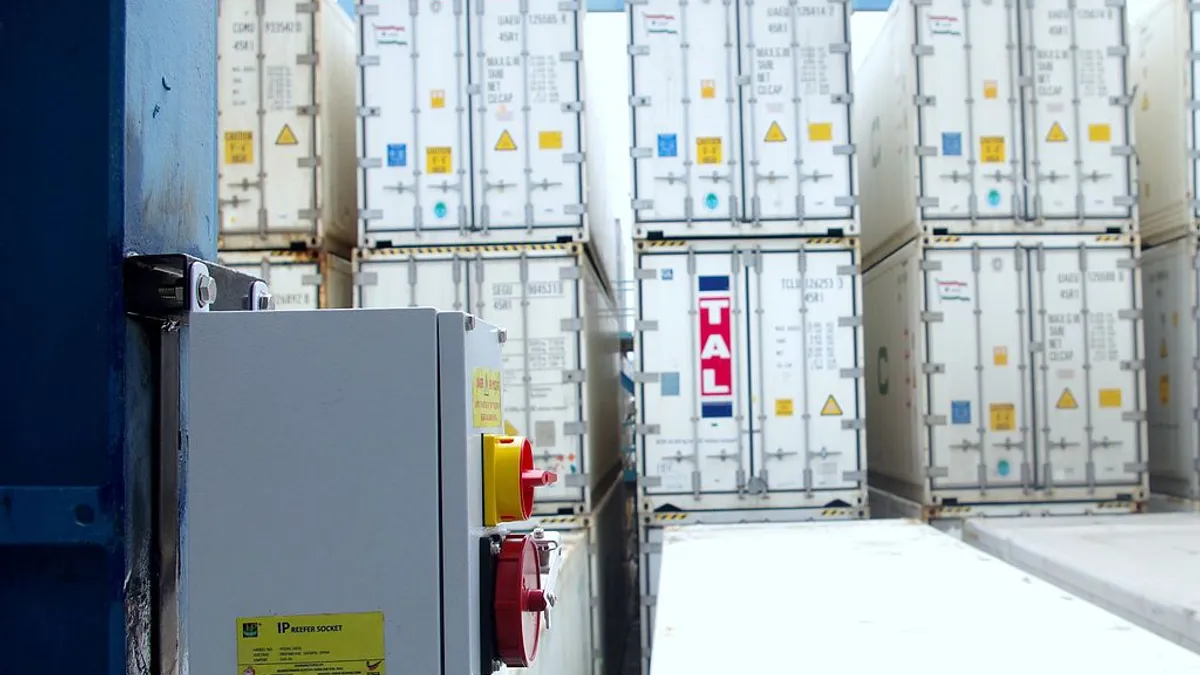Dive Brief:
- A recent study by Carrier revealed that cold chain investments on the supply chain of kinnow, a mandarin orange grown in India, reduced carbon emissions by 16% and spoilage by 76%, the American Journal of Transportation reported last week.
- The study argues that investment in refrigerated trucks offer the quickest return, with debt payoff achieved within just 2 years. A full supply chain could improve profit margins per metric ton sold by 20.7% for aggregators, 3.8% for distributors and 2% for retailers, according to the study.
- Further, the combination of pre-cooling and transport in refrigerated trucks allowed for produce dispersion as far as Russia, Bangladesh, and Dubai. The use of cold chain or refrigeration in emerging economies cuts greenhouse gas emissions produced by spoilage from a ratio of 10 to 1.
Dive Insight:
Carrier estimates only 10% of perishable food receives the cold storage and transport needed to prolong shelf life, despite the benefits to dietary variety, global food access and international trade.
The gap in cold chain investments is partly due to the various stakeholders needed to reap the benefits — after all, one non-refrigerated link could nullify the anti-spoilage benefits of the technology. Yet, the study shows that all actors gain to benefit from developing cold chain infrastructure as it improves market access, allowing a greater audience and timeline for product sales.
Perhaps for these reasons, various actors along the supply chain are investing heavily in cold chains. Maersk and Hapag-Lloyd, for example, recently ordered a combined 20,550 refrigerated containers to ensure their vessels could keep up with cold chain demands. Meanwhile, ports in the U.S. Southeast are bracing for greater food imports through increased cold storage facilities as airports see a rise in refrigerated warehouses nearby.
The greatest growth, however, is being seen within emerging markets like Brazil, China and India where food, healthcare and pharmaceutical exports are rising in economic importance.














